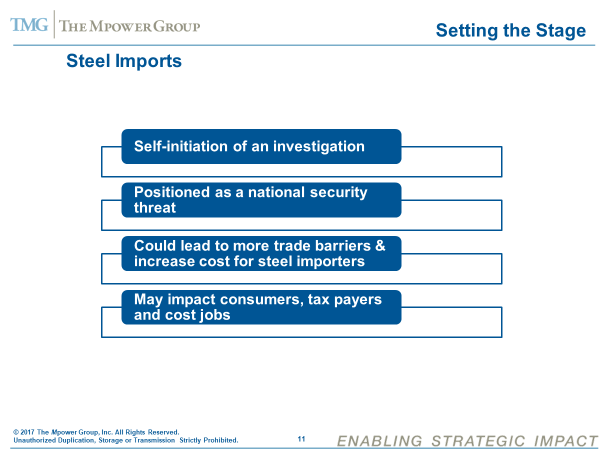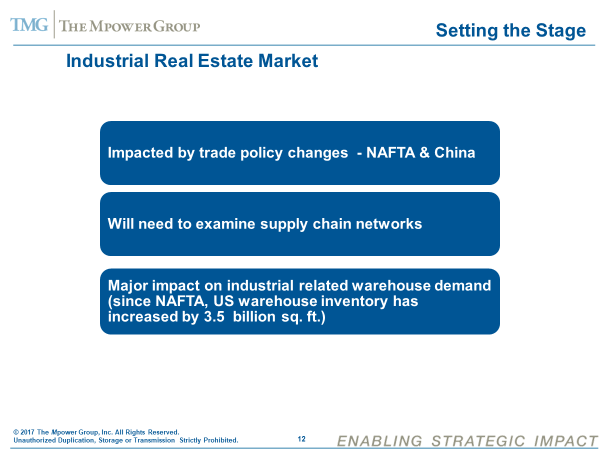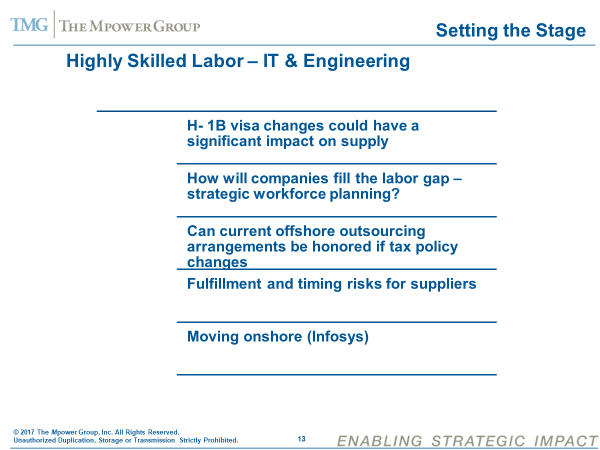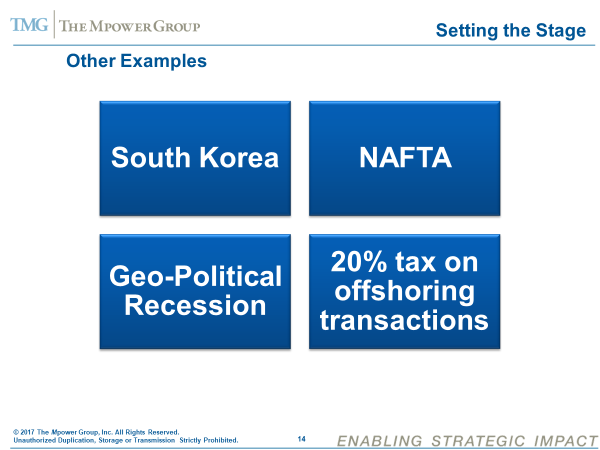“Ford to layoff thousands and take a $1bn impact due to trade policy shift”
“Chinese stock markets take a 5% hit in 1 day due to trade war”
“Relationship with Canada at all time low due to trade tiff”
“Soybean farmers lose billions”
“Hard or Soft BREXIT?”
“Revote on BREXIT”
I could go on and on because these are but a few current headlines that point to major disruptions in the global trade picture due to tectonic shifts in trade and tariff policy. Significant disruptions are expected in global supply chains and the impact to consumers will be felt soon in prices they pay. In a recent interview, David French of the National Retail Federation says that “it will hit consumers in a big way” and that “the big impact is going to be the disruption to their supply chains”. The cost of housing your supply chain in China is drastically going up and the risks are getting greater and greater. Labor costs continue to climb, and tariffs are going to add to the cost. Relocating supply chains to other locations is much easier said than done. Just recall the time it took you to set up shop in China in the first place and the amount of effort it took to get it to run smoothly. Now imagine doing all that all over again in a part of the world that may not be prepared to handle the new volumes.
Many companies are weighing the lead time associated with relocating their supply chain and comparing that to how long they expect current policies to remain. Some are clearly counting on a political change leading to a change in policy and waiting it out. This is why we have long advocated to our clients that any offshoring or outsourcing strategy must always be equipped to constantly identify where the arbitrage is moving to and how to be an early adopter to extract the maximum arbitrage from the new location. That is a Category Management definition and not the traditional sourcing definition.
Amongst the wildlife at Brookfield Zoo in May 2017 (that’s right, eighteen months ago!!), a Procurement Executive Round Table ( PERT ) workshop was held and if you had attended this workshop, you would have participated in and formulated strategies a year ago about what is happening today. As a reminder, here is the description of that workshop:
Are you struggling with how to deal with the potential and significant changes in Trade, Immigration and Foreign Policy? Don’t worry – so are a number of your colleagues. Join us to learn about the impact on Category Management and Supply Chain strategies (whether you buy goods OR services) or just manufacture offshore. We will also be identifying the opportunities for Sourcing/Supply Chain professionals to take on a leadership role on this topic in their companies – thus moving from a tactical to a strategic advisor role:
- Flexibility and agility will become critical in your strategies and contracting
- Currency fluctuations will be the norm
- Existing trade agreements may give way to new ones which will significantly shift cost arbitrage
- New regulations and tariffs will have an impact on lead times
- On-shoring and near-shoring will become competitive again
- Strategic Workforce Planning will need to incorporate new immigration and visa requirements – critical resources (Engineering, IT, etc.) may require new fulfillment strategies
I offer up just a handful of slides from that day and ask you to compare them to the headlines of today and judge for yourself why attending PERT is critical (and the next meeting is free .. gratis..complimentary..you pay bupkus so now even that excuse is gone 😊).




The next PERT meeting will again focus on this topic as it has continued to become even more and more relevant. Attendance is restricted and limited so register soonest to guarantee your seat – you’ll be glad you did.


